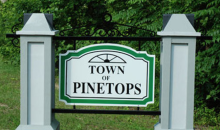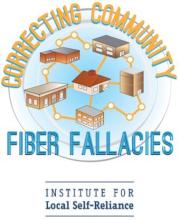Suddenlink's Bad Behavior in Pinetops May Indicate A Troubled Future: Legislature Sides With Big Cable
Rural Pinetop residents are getting a glimpse of the treatment they are going to receive from Suddenlink, even before the ISP has started offering service in the small North Carolina community. According to locals, Suddenlink subcontractors are busting water mains, connecting fiber without homeowner permission, and spreading lies about the Town’s favored community-broadband provider, Wilson's municipal network, Greenlight Community Broadband.
A Bright Economic Future For A While
Back in 2015, this tiny, low income, town felt grateful to receive Fiber-to-the-home (FTTH), symmetrical gigabit Internet service from their electric provider, the municipal electric utility from neighboring Wilson. Suddenlink had turned their back on local residents for years, and before Greenlight began serving the community, a good day of Internet service from incumbent CenturyLink brought them 2 Mbps upload speed.
With high-quality connectivity from Wilson’s Greenlight, the town began envisioning a new economic future. They recognized the importance of high capacity upload speed as an economic development tool to attract the professional and creative class. They wanted to attract doctors, lawyers, engineers, and digital media artists from Greenville and Rocky Mount to their town where the cost of doing business was low and the quality of life was high.
Tech entrepreneurs and other businesses community leaders in Pinetops hoped to attract need high capacity upload to share data heavy files, such as x-rays, and blueprints from a home office or other place of business.
"Whose Side Are You On?"








